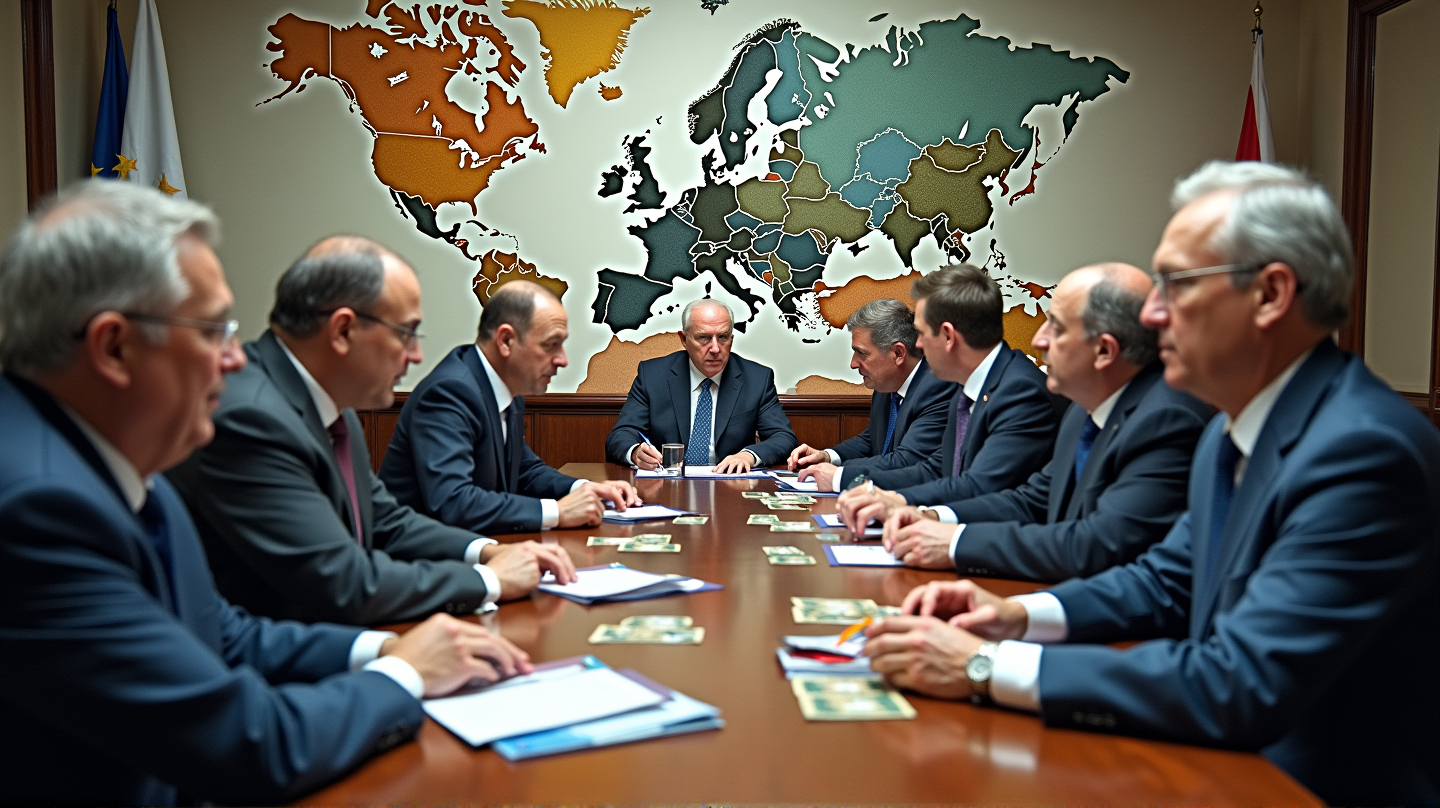Rivalry for Eurogroup Presidency: Ireland, Lithuania, and Spain
The Eurogroup presidency election ignites a fierce contest between Ireland, Lithuania, and Spain. Key finance ministers showcase compelling agendas.

The competition is fierce as Ireland, Lithuania, and Spain go head-to-head for the Eurogroup’s top seat. A leadership role that has only been held by a select few in its two-decade history, the Eurogroup is set to elect its new president, and the stakes are undeniably high.
Steering the Eurozone: A Legacy of Leadership
The historic responsibility of steering economic coordination among the eurozone’s 20 finance ministers rests on the Eurogroup’s elected president. Through the years, the esteemed position has been held by notable figures such as Luxembourg’s Jean-Claude Juncker, the Netherlands Jeroen Dijsselbloem, Portugal’s Mário Centeno, and currently, Ireland’s Paschal Donohoe. Each has left a mark on European economic policy.
According to Euronews.com, Paschal Donohoe’s leadership has been particularly noted for its predictability and stability during crises. However, now facing fervent challenges from counterparts in Spain and Lithuania, the position’s future is far from assured.
Carlos Cuerpo: Spain’s Vision for Transformation
Carlos Cuerpo, the charismatic Spanish finance minister, is bringing a wave of ambition to his candidacy. With a background in economics and substantial experience, Cuerpo seeks not only to lead but transform. Pledging a renewed agenda aimed at enhancing the eurozone’s growth and economic integration, Cuerpo’s vision includes pushing forward the capital markets and banking unions. His reformist outlook and historical context highlight a time for change, moving from discourse to decisive action.
The Spanish finance minister’s agenda calls for building a larger budget to bolster Europe’s defense and advance green and digital transitions, concluding with an assertive reminder that collective success relies not on promises but tangible achievements.
Paschal Donohoe: Continuity Amid Crises
On the other hand, Paschal Donohoe, the sitting president, embodies predictability in turbulent times. He argues passionately about continuing his leadership to navigate current geopolitical and economic challenges. Maintaining stability, furthering digital euro progress, and enhancing security are at the core of his proposal. Donohoe’s seasoned approach seeks to continue fostering unity within the Eurogroup against the backdrop of global uncertainties.
Rimantas Šadžius: Lithuania’s Unwavering Commitment
Considered the wild card, Rimantas Šadžius of Lithuania offers a strategic yet challenging race. His focus on a less concentrated capital markets union sets his agenda apart. Šadžius draws from his experience at the European Court of Auditors and his role in Lithuania’s entry into the eurozone, aiming to rectify the regional disparities within the union.
Not exempt from the hurdles of political alignment and diplomatic entrenchment, Šadžius faces a nuanced battle for votes, particularly as his proposals overlap with Spain’s Cuerpo.
The Election Beckons: Looking Ahead
As the election looms, the real battle is anticipated between Donohoe’s tried-and-tested strategies and Cuerpo’s transformative zeal. With the secretive nature of the vote adding an air of intrigue, finance ministers prepare to cast decisive votes that will shape the Eurozone’s future approach to economic governance.
In this pivotal moment, a new chapter awaits in the Eurogroup’s storied leadership, promising interesting developments in Europe’s financial cohesiveness.





